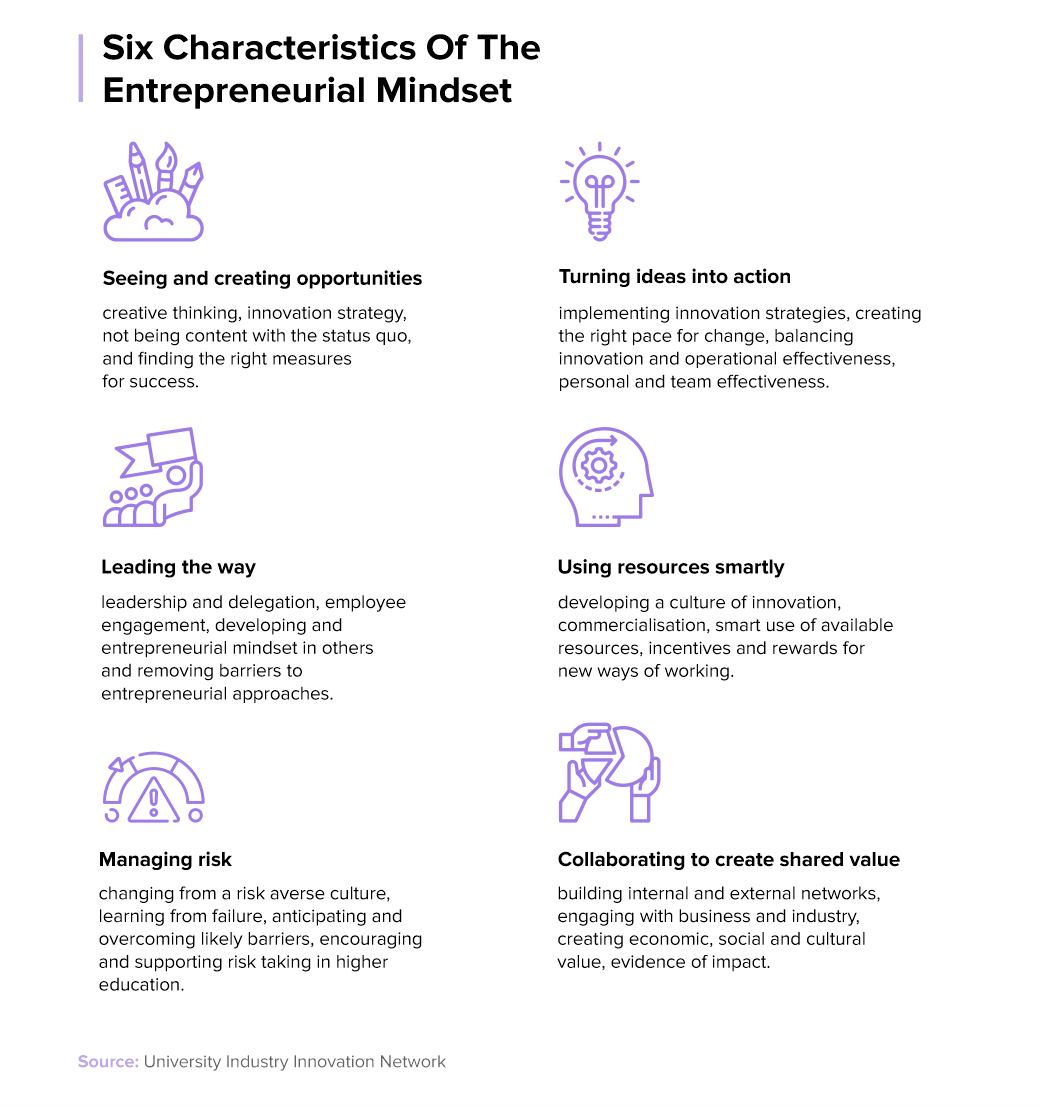The Value of Entrepreneurship Education: Insights from Personal Experience

In today’s fast-paced business environment, the need for a robust entrepreneurial mindset is more critical than ever. Many individuals, even those with traditional backgrounds, are realizing the importance of cultivating skills beyond conventional education. This growing recognition of entrepreneurship as a way to innovate and adapt in a changing landscape is reshaping how we approach learning and growth. Traditional education often emphasizes rote memorization and theoretical knowledge, which can leave aspiring entrepreneurs unprepared for real-world challenges. The entrepreneurial mindset encourages creativity, resilience, and the ability to pivot in response to new information and opportunities. As industries evolve and the global market becomes increasingly competitive, the ability to think like an entrepreneur is invaluable. This shift is not merely a trend; it reflects a fundamental change in how we understand success in business. The entrepreneurial mindset fosters a culture of innovation and adaptability, allowing individuals to thrive in uncertain environments. In this post, we will explore the author’s personal journey through entrepreneurship education, highlighting the transformative power of learning and the importance of a supportive network.
Personal Journey: From Entrepreneur to Student
Transitioning from running a business to pursuing further education can be daunting, filled with uncertainties and self-doubt. Reflecting on my own journey, I faced significant hesitations before enrolling in an entrepreneurship program like UpGrad. After years of hands-on experience in my own venture, I found myself craving a structured approach to learning that would provide clarity and direction for my next steps. The decision to return to school was not made lightly; it was driven by a desire to enhance my knowledge and skills in a formal setting. Initially, I struggled with the idea of being a student again. The shift from being a decision-maker to someone who needed to absorb information felt overwhelming. However, the realization that structured learning could fill the gaps in my understanding became a powerful motivator. Enrolling in UpGrad’s program offered me a blend of theoretical knowledge and practical insights that were essential for my growth as an entrepreneur. The experience reaffirmed my belief that education is a lifelong journey, one that does not end with formal schooling but continues as we adapt to new challenges and opportunities.

The Role of Online Learning in Entrepreneurship
Online learning platforms have revolutionized how entrepreneurs access knowledge and resources. The flexibility and accessibility that online education offers are game changers for busy professionals. With the ability to learn at my own pace, I could balance coursework with my other commitments, making education a more integrated part of my life. This adaptability is particularly important for entrepreneurs who often juggle multiple responsibilities. Interactive learning is another significant advantage of online platforms. Through forums, live sessions, and peer discussions, I engaged with fellow students and industry experts, enriching my understanding of complex concepts. These interactions fostered a sense of community and collaboration, allowing us to learn from each other’s experiences. Additionally, the wealth of resources available online meant I could dive deeper into topics that piqued my interest, ensuring a personalized learning experience. Ultimately, online learning has made it possible for entrepreneurs to continuously update their skills in an ever-changing landscape.
Key Benefits of UpGrad’s Entrepreneurship Program
UpGrad’s entrepreneurship program provides invaluable insights that traditional degrees often overlook. One of the standout benefits is the opportunity to learn directly from industry experts. Their real-world experiences and success stories serve as inspiration and practical guidance, bridging the gap between theory and application. This exposure to seasoned professionals enhances the learning experience, offering insights that are often missing from conventional education. Networking opportunities are another crucial aspect of the program. Engaging with fellow entrepreneurs and mentors allows for the exchange of ideas and collaboration on projects. The connections made during the program can lead to partnerships, potential investors, and a support system that extends beyond the classroom. Moreover, the hands-on projects integrated into the curriculum enable students to apply their knowledge in real-world situations, fostering a deeper understanding of entrepreneurship. This immersive approach not only equips students with essential skills but also builds confidence in their ability to navigate the entrepreneurial landscape. By focusing on practical application, UpGrad’s program empowers aspiring entrepreneurs to transform theoretical knowledge into actionable strategies, ensuring they are well-prepared for the challenges ahead.
Challenges of Traditional Education in Fostering Entrepreneurs
Despite its merits, traditional business education often falls short in preparing students for the realities of entrepreneurship. One significant limitation is the reliance on passive learning methods. Many programs prioritize lectures and textbook learning, which can lead to a disconnect between academic concepts and real-world application. This approach can leave aspiring entrepreneurs without the practical skills necessary to succeed in a dynamic business environment. Additionally, conventional degrees often lack the emphasis on mentorship and experiential learning. True entrepreneurial skills are developed through hands-on experiences, mentorship, and navigating challenges in the real world. Without these critical elements, students may graduate with theoretical knowledge but lack the practical insights needed to thrive as entrepreneurs. To address these challenges, it is essential to seek out educational programs that prioritize experiential learning and mentorship. By engaging in environments that promote active participation, aspiring entrepreneurs can gain the skills and confidence necessary to navigate the complexities of launching and running a business.
The Importance of Mentorship and Networking
Mentorship plays a crucial role in shaping successful entrepreneurs. Connecting with experienced professionals can provide invaluable guidance, support, and motivation. Throughout my entrepreneurial journey, I have witnessed firsthand the impact that mentorship can have on personal and professional growth. A mentor offers insights that can only be gained through experience, helping to navigate the inevitable challenges that arise in entrepreneurship. Moreover, networking is equally important in building a successful entrepreneurial career. Establishing connections with peers and industry leaders opens doors to collaboration, partnerships, and new opportunities. A strong network not only provides resources and advice but also creates a sense of community that encourages resilience and innovation. Engaging with others who share similar aspirations fosters an environment of support, making the entrepreneurial journey less isolating. To fully leverage the benefits of mentorship and networking, aspiring entrepreneurs should actively seek opportunities to connect with others in their field. Attending industry events, joining entrepreneurial communities, and participating in workshops can facilitate meaningful relationships that contribute to long-term success.
Practical Skills for Aspiring Entrepreneurs
Successful entrepreneurs possess a unique set of skills that are often not taught in traditional academic settings. Understanding risk assessment, leadership, negotiation, and decision-making are crucial for anyone looking to thrive in the entrepreneurial landscape. These skills are not just theoretical; they must be cultivated through practice and real-world experiences. Risk assessment involves the ability to analyze potential challenges and make informed decisions based on available data. Entrepreneurs must be adept at evaluating risks and rewards, allowing them to navigate uncertainties effectively. Leadership skills are equally important, as successful entrepreneurs need to inspire and motivate their teams, fostering a culture of innovation and collaboration. Negotiation is another essential skill that can significantly impact business outcomes. The ability to negotiate effectively can lead to better deals, partnerships, and overall success. Decision-making, particularly under pressure, is a skill that can be honed through experience and reflection. Aspiring entrepreneurs should seek opportunities to develop these skills actively, whether through internships, volunteering, or engaging in entrepreneurial projects.
Conclusion: The Future of Entrepreneurship Education
As the landscape of entrepreneurship continues to evolve, so too must the methods of education that support it. Innovative programs that bridge the gap between theory and practice are essential for preparing the next generation of entrepreneurs. The future of entrepreneurship education lies in embracing experiential learning, mentorship, and collaboration, ensuring that aspiring entrepreneurs are equipped to tackle the challenges ahead. The importance of continuous improvement cannot be overstated. As industries change and new technologies emerge, entrepreneurs must remain adaptable and open to learning. Programs that promote lifelong learning and encourage exploration of new ideas will be critical in shaping successful entrepreneurs in the future. Aspiring entrepreneurs should actively seek out learning opportunities that align with their goals and values. Whether through formal education, online courses, or community engagement, the commitment to personal and professional growth will be a key driver of success in an increasingly competitive landscape.
Call to Action: Embrace the Entrepreneurial Spirit
In conclusion, I encourage readers to reflect on their own entrepreneurial journeys. Consider investing in your education, seeking mentorship, and engaging with supportive communities. The path to entrepreneurship is filled with challenges, but it is also incredibly rewarding. By taking proactive steps toward realizing your entrepreneurial aspirations, you can embrace the spirit of innovation and adaptability that defines successful entrepreneurs. Remember, the journey of entrepreneurship is not a solitary one. Engage with others, share your experiences, and learn from those who have walked the path before you. Together, we can cultivate a vibrant ecosystem of entrepreneurs who are empowered to make a difference in the world. Embrace your entrepreneurial spirit, and let your journey begin!




Comments